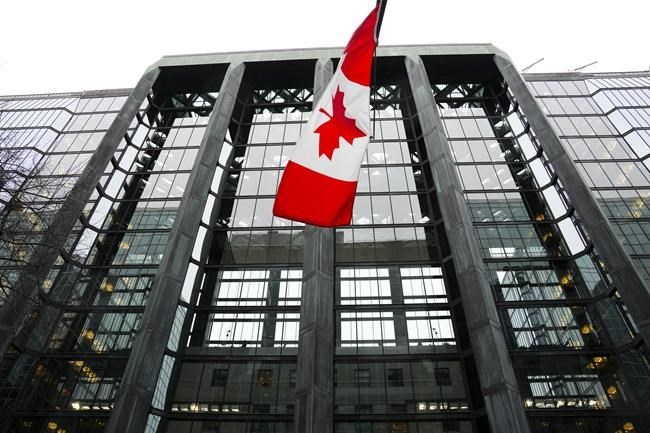OTTAWA — After years of sitting at rock bottom levels, higher interest rates are forcing Canadians with debt to pay more and crimping budgets — but for investors in need of income from their portfolio, higher rates are a welcome sight.
When interest rates tumbled, investors living off their savings searched for a way to earn income from their investments and in some cases took on more risk as they looked to dividend paying stocks and riskier bonds.
Jordan Damiani, an investor adviser at Meridian Credit Union, said 2022 was a difficult year as higher interest rates took a toll both on the stock markets and the bond market.
But he said bond investments that were yielding 1.5 to two per cent before the pandemic are now yielding anywhere from five to seven per cent.
"There's potentially the opportunity for the more conservative retiree investor to actually generate significant yield now from fixed income," he said.
"So that's a big change, and bonds go up in value when interest rate expectations go down and we've actually started to see interest rate expectations go down since October."
The Bank of Canada kept its key interest rate on hold Wednesday at 4.5 per cent, the first time it has left the trendsetting rate unchanged since it began raising it last year.
The increases have helped drive up bond yields and the rates paid on investments such as guaranteed interest certificates (GICs) and term deposits. The yield on Canadian government five-year bonds, which began 2022 at about 1.5 per cent, was more than 3.5 per cent in recent days.
However, there are risks in chasing the higher yields from bonds and other investments.
While bonds and investments like GICs are paying higher rates, those returns are being offset by hotter inflation.
A five per cent return on a GIC may look attractive enough compared with the paltry rates paid a couple of years ago, but with inflation at around six per cent, that return doesn't look as good when compared with the rising cost of living.
Joe Reid, vice-president of wealth management and impact investing, at Vancity, said investors often think of GICs as being safe and while the return and the principal are safe, the risk is your returns won't keep up with inflation and you will see your purchasing power eroded.
Reid said it is important that your portfolio is structured to meet your needs.
"If an individual has money they've kept maybe on the sidelines or as an emergency fund and they were looking at wanting to get in and take advantage of the rates, it's not a bad idea as part of a balanced portfolio," he said.
But he cautioned that it needs to be part of a larger financial plan.
"When you're looking at building out an overall portfolio that is based around your values, based around your time horizon, based around your risk tolerance, it allows you to know exactly the type of investing that you should do and not fall trapped to that emotional investing," he said.
Damiani said there's still reason to hold stocks.
"Equities tend to be one of the best buffers against inflation, and part of the reason why is companies can raise prices," he said.
But Damiani said you still want a mix of some stocks and fixed income in any portfolio because over some periods of time you will get more return from stocks, and over different periods your returns will come from your fixed income.
This report by The Canadian Press was first published March 8, 2023.
Craig Wong, The Canadian Press



